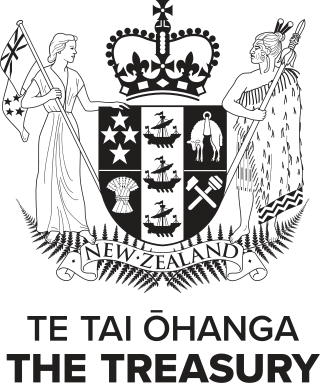Related Research Articles

Accounting, also known as accountancy, is the process of recording and processing information about economic entities, such as businesses and corporations. Accounting measures the results of an organization's economic activities and conveys this information to a variety of stakeholders, including investors, creditors, management, and regulators. Practitioners of accounting are known as accountants. The terms "accounting" and "financial reporting" are often used interchangeably.

In management accounting or managerial accounting, managers use accounting information in decision-making and to assist in the management and performance of their control functions.

An accountant is a practitioner of accounting or accountancy. Accountants who have demonstrated competency through their professional associations' certification exams are certified to use titles such as Chartered Accountant, Chartered Certified Accountant or Certified Public Accountant, or Registered Public Accountant. Such professionals are granted certain responsibilities by statute, such as the ability to certify an organization's financial statements, and may be held liable for professional misconduct. Non-qualified accountants may be employed by a qualified accountant, or may work independently without statutory privileges and obligations.
The Institute of Chartered Accountants of Scotland (ICAS) is the world's first professional body of Chartered Accountants (CAs).

Chartered accountants were the first accountants to form a professional accounting body, initially established in Scotland in 1854. The Edinburgh Society of Accountants (1854), the Glasgow Institute of Accountants and Actuaries (1854) and the Aberdeen Society of Accountants (1867) were each granted a royal charter almost from their inception. The title is an internationally recognised professional designation; the certified public accountant designation is generally equivalent to it. Women were able to become chartered accountants only following the Sex Disqualification (Removal) Act 1919 after which, in 1920, Mary Harris Smith was recognised by the Institute of Chartered Accountants in England and Wales and became the first woman chartered accountant in the world.

Founded in 1904, the Association of Chartered Certified Accountants (ACCA) is the global professional accounting body offering the Chartered Certified Accountant qualification (ACCA). It has 240,952 members and 541,930 future members worldwide. ACCA's headquarters are in London with principal administrative office in Glasgow. ACCA works through a network of over 110 offices and centres in 51 countries - with 346 Approved Learning Partners (ALP) and more than 7,600 Approved Employers worldwide, who provide employee development.

The Chartered Institute of Public Finance and Accountancy (CIPFA) is a UK based organisation for accountants who work in the public sector, accounting firms and other professional bodies where management of public funds are required. CIPFA is the only UK professional accountancy organisation who is dedicated to public financial management. They currently have approximately 14,000 members. They offer qualifications including a professional qualification for public sector accountants as well as a postgraduate diploma for people already working in management.
International Public Sector Accounting Standards (IPSAS) are a set of accounting standards issued by the IPSAS Board for use by public sector entities around the world in the preparation of financial statements. These standards are based on International Financial Reporting Standards (IFRS) issued by the International Accounting Standards Board (IASB).
Government financial statements are annual financial statements or reports for the year. The financial statements, in contrast to budget, present the revenue collected and amounts spent. The government financial statements usually include a statement of activities, a balance sheet and often some type of reconciliation. Cash flow statements are often included to show the sources of the revenue and the destination of the expenses.

The New Zealand Treasury is the central public service department of New Zealand charged with advising the Government on economic policy, assisting with improving the performance of New Zealand's economy, and managing financial resources. The Minister responsible for the Treasury is the Minister of Finance of New Zealand; however, from 1996 to 2002, there existed a more specific position of Treasurer of New Zealand. The role was created for Winston Peters by the Fourth National Government under Jim Bolger after the 1996 election, and abolished by Helen Clark’s government in 2002.
British qualified accountants are full voting members of United Kingdom professional bodies that evaluate individual experience and test competencies for accountants.
Accountancy in Hong Kong is regulated by the HKICPA under the Professional Accountants Ordinance. The auditing industry for limited companies is regulated under the Companies Ordinance, and other Ordinances such as the Securities and Futures Ordinance, the Listing Rules, etc.

The Pakistan Institute of Public Finance Accountants (PIPFA) is an autonomous body recognized mainly in the government sector and established under license from the Securities and Exchange Commission of Pakistan by the authority given under section 42 of the Companies Ordinance, 1984.

The International Federation of Accountants (IFAC) is the global organization for the accountancy profession. Founded in 1977, IFAC has 180 members and associates in 135 jurisdictions, representing more than 3 million accountants in public practice, education, government service, industry, and commerce. The organization supports the development, adoption, and implementation of international standards for accounting education, ethics, and the public sector as well as audit and assurance. It supports four independent standard-setting boards, which establish international standards on ethics, auditing and assurance, accounting education, and public sector accounting. It also issues guidance to professional accountants in small and medium business accounting practices.
The Association of National Accountants of Nigeria (ANAN) is one of the two professional accountancy associations with regulatory authority in Nigeria, the other being the Institute of Chartered Accountants of Nigeria (ICAN). A consultant offering financial services in Nigeria must be a member of either ANAN or ICAN.

The National Board of Accountants and Auditors (NBAA) is an accounting professional and regulatory body operating under the Ministry of Finance and Economic Affairs, the sole body to certify accountants in Tanzania. It began operating on 15 January 1973.
Public Finance comprises a bimonthly magazine, a UK news website and an international news website covering public policy and public sector finance.
A Public Sector Balance Sheet, like a balance sheet in the corporate world, reports comprehensively on what a government owns and owes, as well as its own capital. As such, it is a critical element of a system of Public Financial Management. A balance sheet, or statement of financial position, recognises and discloses the assets, liabilities, and net worth at a given point in time, for a government entity, a government or the whole public sector. An important metric for the fiscal position of the whole public sector is public sector net worth.
The change in public sector net worth in any given forecast year is largely driven by the operating balance and property, plant and equipment revaluations.
References
- ↑ "Professor Ian Ball". Victoria University Wellington. Retrieved 25 April 2019.
- ↑ Ian Ball CVifac.org Archived 2019-04-08 at the Wayback Machine
- ↑ "IFAC Lauds Ian Ball's Contributions to Accountancy Profession with International Gold Service Award". 6 November 2014.
- ↑ Scott articlecepchile.cl Archived 2019-04-06 at the Wayback Machine
- ↑ "Ian Ball appointed as Chairman CIPFA International | CIPFA". Archived from the original on 2019-04-08. Retrieved 2019-04-08.
- ↑ "Our governance | The Treasury New Zealand". www.treasury.govt.nz. 2 February 2023. Retrieved 18 September 2023.